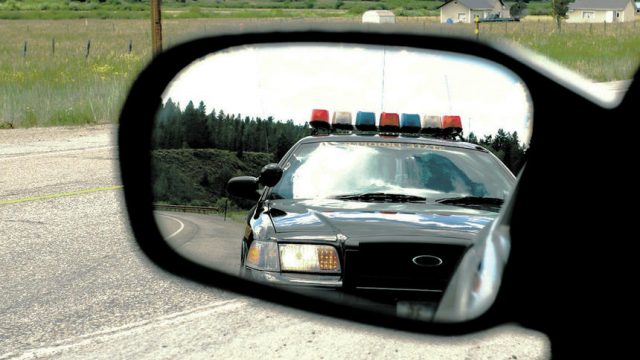Mark Friese: North Dakota Law Enforcement Agencies Routinely Use Unlicensed, Unregulated Officers and the Legislature Must Stop It

This guest post was submitted by Mark Friese, a former licensed police officer and currently a Fargo-based attorney working in criminal defense.
You look in the mirror and see emergency lights. You immediately pull to the right and stop. A deputy sheriff gets out of the fully marked official vehicle, wearing a uniform, badge, and a gun. He directs you out of the car, asks to search your car, and directs you to submit a breath sample to prove you’re not drinking. After being detained for 20 minutes and being subjected to inquiry and testing, you are allowed to leave. Days later, you learn the deputy is not a licensed police officer, has never been to the police academy, has never completed a background check, cannot be disciplined, and is not certified to conduct the testing he requested.
In 2019, most would believe this scenario would never occur in North Dakota. But it does, regularly. And unless the Legislature acts, it will continue.
[mks_pullquote align=”right” width=”300″ size=”24″ bg_color=”#ffffff” txt_color=”#000000″]Those vested with police power must be subject to oversight, discipline, and the minimum standards prescribed by law. For no good reason, current law provides an end run around the licensing and regulatory safeguards of law.[/mks_pullquote]
Law enforcement is a proud profession. Most who choose the profession in North Dakota must meet the rigors of extensive background checks, police academy training, and Peace Officer Standards and Training (POST) testing—including obtaining passing scores on criminal and traffic law examinations. Licensed officers must demonstrate ongoing proficiency with firearms under standards established and monitored by the POST Board. Licensed officers must maintain continuing education, also monitored by the Board.
Licensed officers who engage in misconduct are subject to discipline by their employing agency, as well as adverse license action by the POST Board. Those with felony convictions, dishonorable discharge from the military, domestic violence convictions, or others are ineligible to become licensed peace officers.
To the surprise of many, including me—a formerly licensed police officer and lawyer—North Dakota law exempts “reserve officers” from licensing, oversight, training, and regulation. Even more surprising is that certain law enforcement agencies have embraced this exemption as a complete end run on licensing and qualification standards.
Last July, in State v. Ngale, the North Dakota Supreme Court addressed a legal challenge to the use of an unlicensed volunteer reserve officer for routine police patrols. Statute allows a “law enforcement officer” to request chemical tests following arrest for impaired driving. In the case, a volunteer Cass County reserve deputy was placed on routine patrol, without direct supervision, and without a peace officer license.
The “reserve officer” requested a chemical test under statute without “law enforcement officer” status. The court rejected the legal challenge, finding the reserve deputy was “exempt” from licensing, qualification, training, and regulatory standards.
Subsequently, in reports and sworn testimony, I have observed the routine use of unlicensed, unsupervised officers for routine patrols and other law enforcement functions. I have obtained testimony of reserve officers conducting preliminary breath testing without certification from the state toxicologist, like licensed officers must obtain.
These officers have testified about conducting all facets of law enforcement duties, without formal POST training or certification.
I do not question the motives or volunteerism of those who seek reserve officer status. But I strongly object to granting police power to those who are not subject to licensing and oversight. Unlike licensed officers, reserve officers can have felony or domestic violence convictions, or can serve as police officers following dishonorable military discharge. Unlike a licensed deputy, volunteer reserve officers are not subject to discipline by a police employer—as unpaid volunteers, they cannot be “fired.”
They are not subject to license action or oversight by the POST Board. They are not required to honor and abide by the peace officer code of ethics—a mandate for every licensed officer. Most importantly, they are not accountable to the citizens—those served, and those with the power to grant law enforcement authority in the first instance.
Those vested with police power must be subject to oversight, discipline, and the minimum standards prescribed by law. For no good reason, current law provides an end run around the licensing and regulatory safeguards of law. I write openly, seeking to illuminate concerns while urging our lawmakers to collectively take immediate action. The Legislature should immediately abolish “reserve officers,” or at a minimum, impose testing, qualification, oversight, and accountability standards.




